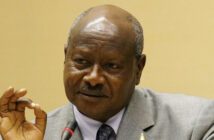Critics of Nigeria’s foreign exchange policy got yesterday a tough reply —the rules won’t be changed to please “portfolio investors”. This was the Vice President Yemi Osinbajo’s view as he backed the Central Bank of Nigeria’s (CBN’s) currency controls measures.
The government wasn’t “unduly worried” by a decision from JPMorgan Chase & Co. to remove the nation’s bonds from its emerging-market bond indexes, Osinbajo said in an interview with a church organization, which was broadcast on Channels TV and monitored by Bloomberg.
Nigeria’s inclusion in the indexes in 2012 had attracted “hot money” into the economy, which has now been reversed, he said. The naira’s plunge to a record low in February following a slump in oil prices prompted CBN Governor Godwin Emefiele to extend restrictions on trading and introduce bans on purchases of dollars by certain importers.
While the controls have helped to stabilize the currency of Africa’s largest oil producer, it has put Emefiele at odds with investors and even fellow central bankers, who say the naira is overvalued.
“We need short-term foreign exchange controls even at the risk of delisting at JPMorgan,” Osinbajo said. The restrictions “have really been successful. They’ve led to a situation where our foreign-exchange reserves have stabilized and our current-account deficit has narrowed, which is good in the short term, but it can only be short term.”
Osinbajo’s comments echo those of President Muhammadu Buhari, who said on September 16 that he opposes a further devaluation of the naira.
Half the Nigerian bonds listed on JP Morgan’s emerging markets bond index (GBI-EM) was removed last Wednesday from the index.
The decision, which means investment funds tracking the index will sell Nigerian bonds, adds to upward pressure on national borrowing costs from a sharp drop in oil revenues.
JP Morgan said last month it would drop Africa’s largest economy from its index, citing a lack of liquidity and currency restrictions.
The bank said in a note 50 percent of bonds will be removed as of September 30, part of its month-end index rebalancing, cutting Nigeria’s weight to 0.79 per cent. The weight of Brazil and South Africa will increase by 0.80 percent and 0.20 per cent respectively.
In 2012, Nigeria became the second African country after South Africa to be listed in the index with a weight of 1.8 per cent. The estimated yield for Nigeria bonds on the index was quoted at 14.83 percent as of Sept. 25, marking the second highest yield after Brazil at 15.75 per cent, the bank said.




